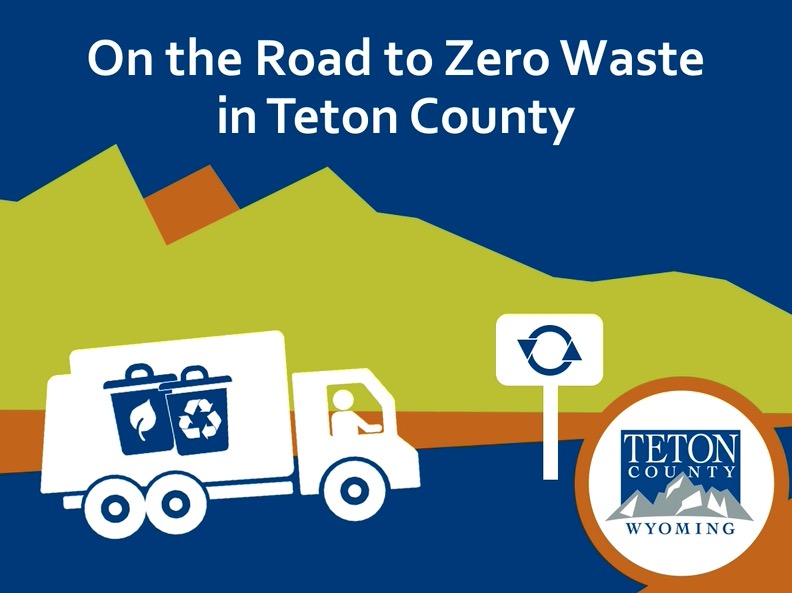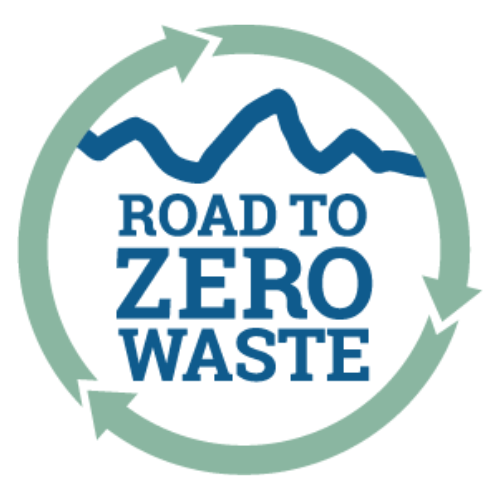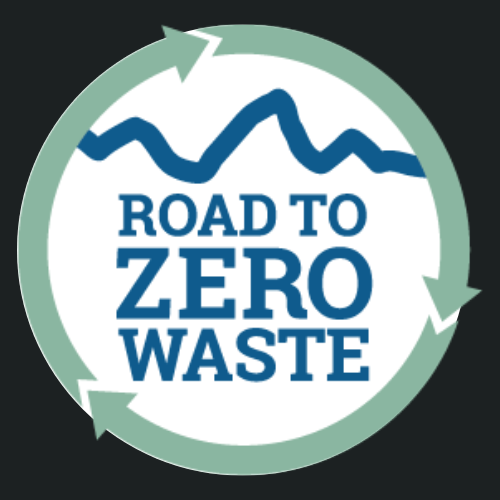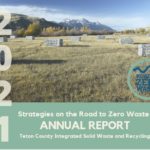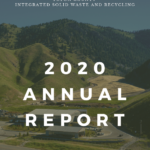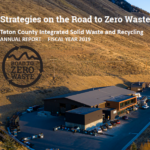
Road to Zero Waste
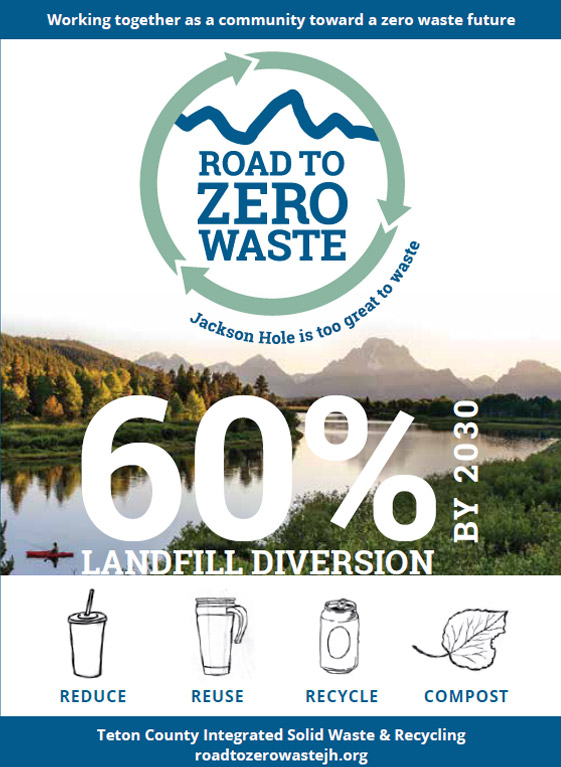
What Is Zero Waste
The first step in understanding zero waste is understanding how materials flow through our society. With industrialization and convenience-based products, this flow has become increasingly linear – more and more raw materials are extracted from the earth, then manufactured, consumed and all too quickly, disposed of in landfills. This pattern leaves us with a one-way fast-track of valuable resources straight into the ground. Zero Waste is a movement towards a more circular flow of materials – a cycle in which the value and useable life of raw materials are extended through reduction, reuse, recycling and composting. Nature absorbs Zero Waste materials valuable nutrients or the market economy absorbs them as valuable commodities. Disposal into landfills is a last resort.
In Teton County, as in other communities with the goal of zero waste, it’s important to understand that “zero” is an ideal. Achieving this ideal involves incremental goals with measurable targets. The Teton County Road to Zero Waste Plan identifies the initial goal of 60 percent waste diversion from landfill or incineration by the year 2030. This will be a 26 percent increase from our current diversion rate of 34 percent. As technologies develop and processes evolve, the ability to achieve 100 percent diversion, or true zero, will become more possible.
Guiding Principles of the Teton County Zero Waste Resolution
- Managing resources instead of waste
- Conserving natural resources through waste prevention and recycling
- Turning discarded resources into jobs and new products instead of trash
- Promoting products and materials that are durable and recyclable
- Discouraging products and materials that can only become trash after their use
- Using education as a tool to maximize community engagement
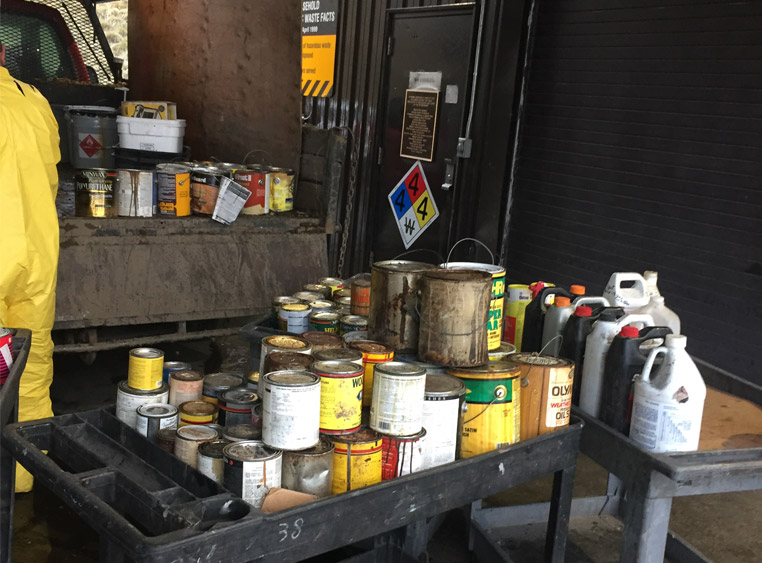
Why Zero Waste
Teton County is uniquely positioned to serve as a regional and national leader in Zero Waste. As home to the Tetons and a destination for over 3.5 million annual visitors to this treasured natural landscape, we are poised to inform and influence a broad audience.
We are doing so already. Teton County businesses, residents and visitors currently divert 34 percent of their discarded materials from the landfill through reuse, recycling and composting. In many places across our nation, recycling and other waste diversion is mandatory. Achieving 34 percent through a completely voluntary program is commendable and allows many opportunities for improvement.
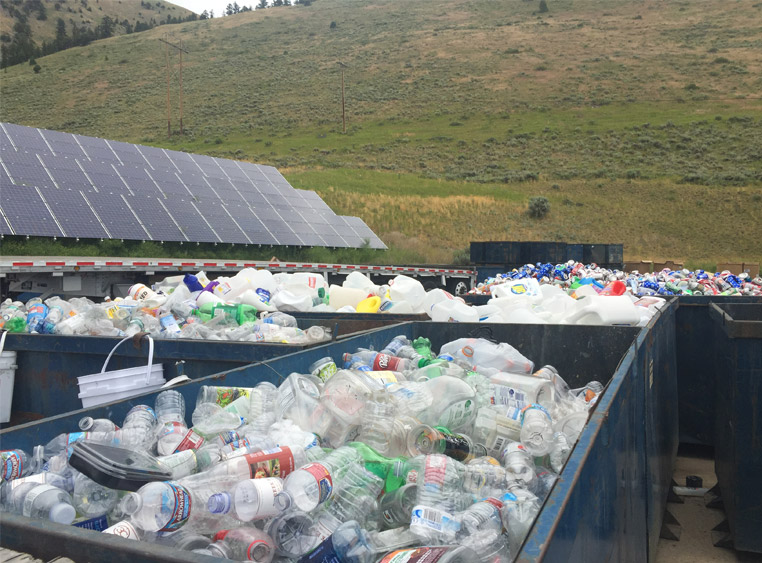
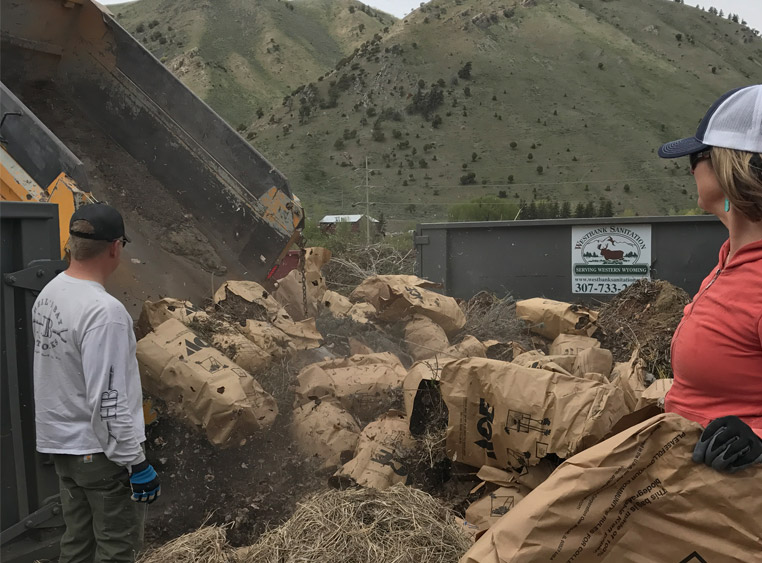
Strengths and Opportunities identified by an independent consultant, Skumatz Economic Research Associates, Inc., “Jackson Community Recycling Long Range Plan,” 2010.
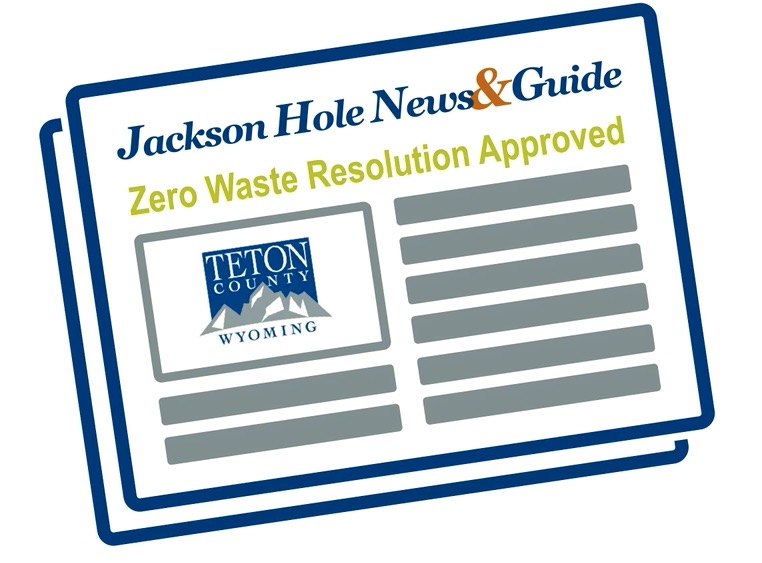
Teton County Plan
Advancing on the Road to Zero Waste will build upon proven success while providing guidelines for continued achievement over the next fifteen years. In 2015, over 86 million pounds of discarded materials were generated in Teton County. Of this total, nearly 30 million pounds of material were recycled, composted or recovered through reuse. Accomplishing the initial Road to Zero Waste plan goal of 60 percent by 2030 will mean the diversion of an additional 23 million pounds from the landfill. Reaching this total will require expanded community outreach, improved facilities and more convenient opportunities for diversion.
During the first five years of the Plan, the focus will be on building a strong foundation. Initiatives may include the expansion of commercial cardboard recycling, raised awareness of food waste reduction, implementation of commercial food waste composting, incentives for the diversion of construction and demolition waste, residential waste collection fees that reward diversion, and recognition of Zero Waste events and initiatives.
The following ten years of the plan will focus on enhancing the convenience, availability and efficiency of new and existing waste diversion opportunities. Longer-term implementation includes possible expansion of curbside collection of recyclables, increased yard waste collection and recycling services that require less sorting.
- Background of the Road to Zero Waste in Teton County
- September 2014: Teton County Commissioners pass a resolution to adopt Zero Waste as a guiding principle and support the creation of a zero-waste plan.
- September 2014: Teton County approves Zero Waste Resolution, placing it among the first 35 communities in the U.S. to adopt Zero Waste and making it one of only six Zero Waste communities in the Rocky Mountain West region.
- August 2015: Town of Jackson approvs Zero Waste Resolution
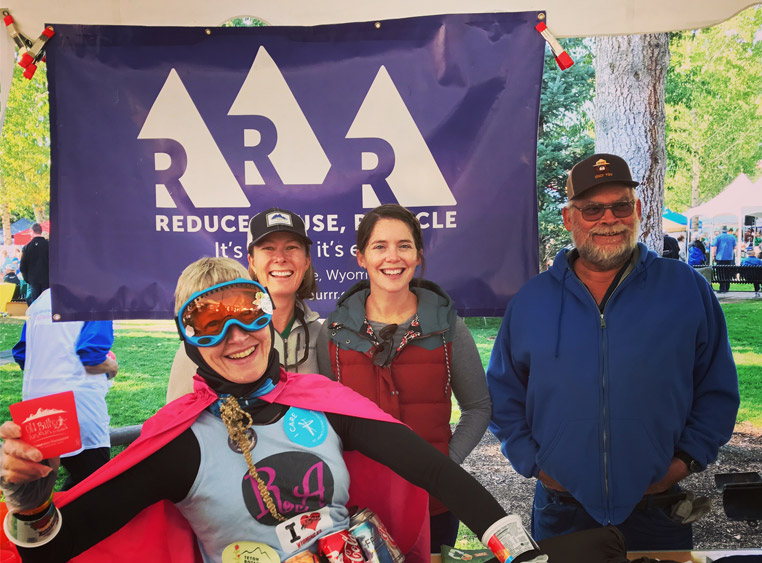
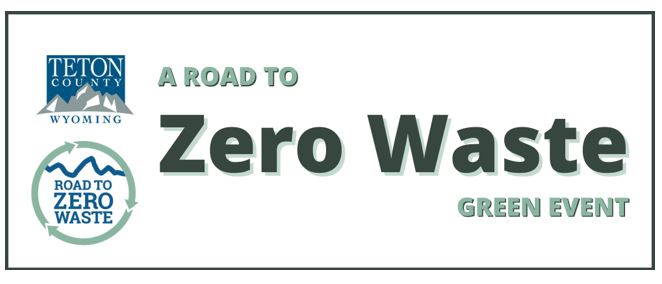
Why Zero Waste Events
Zero Waste Events are a critical element of the overall approach toward Zero Waste. In particular, they target the Reduce component of the three R’s – to Reduce, Reuse and Recycle. In the hierarchy of solid waste, reducing the amount of generated waste is the primary and most highly recommended measure. Events tend to generate a considerable amount of waste in a very short time period. They are also a great way to show your commitment to the environment while creating a model of Zero Waste for your guests, and an opportunity to expose people to the possibility of a world without waste(or at least a lot less of it) in a tangible and compelling way.
We have developed a Zero Waste Green Event Resource Guide to assist in incorporating Zero Waste practices at your next event. By using Zero Waste Green Event Resource Guide, you will:
- Learn how to easily incorporate Zero Waste best practices into your event
- Discover how Zero Waste can be both environmentally and economically beneficial
- Start planning aspects of your own Zero Waste event
Explore a variety of tools for planning your Zero Waste event, including:
- Recycling, trash disposal and composting information specific to Teton County;
- Methods and worksheet for tracking event waste diversion; and,
- Zero Waste event planning checklist.
Distinguish your event from the pack – apply for Zero Waste Green Event Recognition through Teton County’s RRR program and enjoy the benefits associated with this local certification.
We hope this guide provides useful information on how to host a Road to Zero Waste event in Teton County, Wyoming. Please call Teton County Integrated Solid Waste and Recycling at 307-733-7678 for more information or assistance.
Organizations
EcoCycle, https://ecocyclesolutionshub.org/ and https://ecocycle.org/
Zero Waste International, www.zwia.org
Other communities approaching zero waste
Boulder, CO https://bouldercolorado.gov/zero-waste
Fort Collins, CO https://www.fcgov.com/zerowaste/
Austin, TX https://austintexas.gov/environment/zero-waste
San Francisco, CA https://sfenvironment.org/zero-waste
Links for zero waste businesses
Links to other areas of the RRR website that include strategies for waste diversion
Jackson Hole Sustainability Resource Guide https://sustainabledestination.org/wp-content/uploads/2014/01/Sustainability-Resource-Guide.pdf
Links for zero waste homes
https://www.zerowastehome.com/
Jackson Hole Sustainability Resource Guide https://sustainabledestination.org/wp-content/uploads/2014/01/Sustainability-Resource-Guide.pdf
